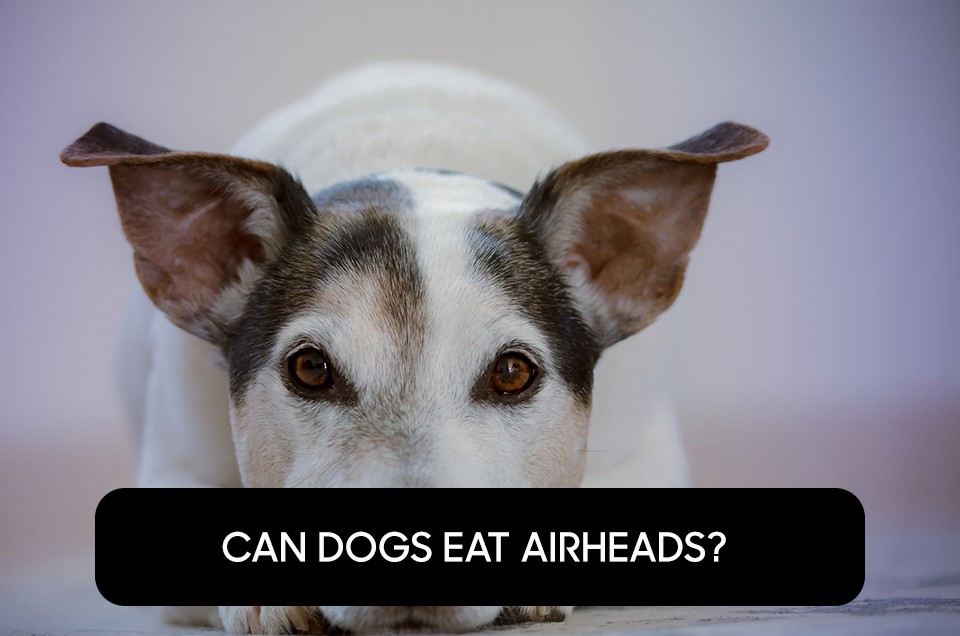
Airheads are a popular candy that is commonly enjoyed by children and adults alike. They come in a variety of fun flavors, including watermelon and cherry.
However, they are not considered a healthy treat for dogs to eat. They can be a choking hazard, and their sugar content is not good for dogs.
High Sugar Content
Airheads are a fun, tangy, chewy candy that resembles chewing gum. They come in a variety of flavors, including sour green apple and blue raspberry.
While it may be tempting to give your dog airheads as a treat, they are not healthy for dogs and should be avoided. The sugar and xylitol in these treats can cause severe health problems, especially in diabetic dogs.
The high sugar content in airheads can cause diabetes and obesity in dogs, both of which can lead to serious health complications. Feeding your dog too much sugar can also increase the risk of developing heart disease, joint pain, and respiratory issues.
When it comes to the type of treats your dog should have, it’s important to understand the different kinds available on the market. Some of them contain more harmful ingredients than others, so you should always choose healthier options when it comes to candies and other treats for your dog.
If you’re looking for a sweet treat that is safe for your dog, consider trying rawhide or bones instead. These treats have more nutritional value and are easier to digest than airheads.
It is not recommended to feed your dog more than 10 grams of airheads at a time. This is because too much sugar can trigger digestive problems in your dog, such as vomiting and diarrhea.
The best way to prevent your dog from consuming too much of these candies is to keep them out of reach. You should also limit how many you give them at a time, and consider their size and weight when making this decision.
You should also avoid giving your dog xylitol-containing products, such as airheads and other gummies. Xylitol is extremely toxic to dogs and can cause them to develop hypoglycemia, which is dangerous for your dog’s health.
Xylitol is toxic to your dog’s kidneys and liver, and it can cause serious health problems. It can also cause seizures and even death in some cases. If you suspect your dog has eaten a lot of xylitol-containing products, contact your veterinarian immediately.
Xylitol
Xylitol is a sugar substitute that is used in a lot of chewing gum and breath mints. It also finds its way into products like peanut butter, lip balms and toothpaste.
This sweetener is very low on the glycemic index (GI), which means it has fewer calories than sugar. It is a popular alternative to sugar for people who are trying to manage their weight or avoid diabetes. It is also a great ingredient for many baked goods and even has dental plaque fighting properties.
However, Xylitol can be toxic to dogs if they eat too much. It can cause a drop in blood sugar (hypoglycemia) and liver damage or failure, especially if the ingestion occurs at a high dose or is not treated promptly.
If you think your dog may have ingested xylitol, it is important to get them to the vet as soon as possible. Your veterinarian will check for signs of toxicity and evaluate your dog’s blood work. If your dog is showing signs of poisoning, they will likely induce vomiting and try to maintain their blood glucose levels using IV fluids and dextrose supplementation.
Once your dog is stable, they will be admitted to the hospital for observation and serial blood work to monitor their blood sugar and liver function. If hyperphosphatemia (high phosphorus) is found, a liver protective medication will be prescribed to minimize further damage.
Xylitol poisoning can occur quickly, and it’s easy for your dog to eat too much of this toxic substance. It’s important to make sure your pet doesn’t have access to gum, candy or mints that contain xylitol.
If your dog accidentally eats xylitol, it is critical to call the ASPCA Animal Poison Control Center or Lebanon Animal Hospital for guidance. They will provide you with the contact information for a local veterinarian who can treat your pet.
Your vet will ask a number of questions, so be prepared to bring all the product packaging from what your dog ate. This can save you a lot of time later, and can help them diagnose your pet’s condition quicker.
Artificial Sweeteners
Artificial sweeteners are used to replace sugar in foods and drinks. They provide sweetness without containing calories, which can be tempting for people trying to lose weight. However, they can lead to weight gain and obesity if eaten in large quantities.
The main problem with artificial sweeteners is that they can retrain the taste buds to crave more and more sweetness. Often, people eat more foods and drink more beverages that are sweetened with them. This increases their appetites and leads to weight gain, resulting in obesity.
Some people have reported that replacing regular soda with diet soda or water has helped them to lose weight and improve their health. In one study, overweight people who replaced a quarter gallon (one liter) of soda with diet soda and drank water daily lost 17-21% more weight and body fat than those who drank the soda and did not change their eating habits.
There are several types of artificial sweeteners that you can use to reduce your calorie intake, including erythritol, stevia, maltitol, saccharin, sorbitol, aspartame and sucralose. These artificial sweeteners are approved by the FDA for use in a variety of foods and beverages.
These sweeteners are similar to the chemical compounds that naturally occur in sugar. They have molecules that fit perfectly on your taste receptors for sweetness, making it easier for your brain to detect the sweet flavor.
They are also much lower in carbohydrates than sugar, so they may be less likely to cause gastrointestinal problems like bloating or gas in some people. They can be added to baked goods or added to your tea, coffee or other liquids to give them a sweeter flavor.
The amount of these sweeteners that you should consume depends on your age, weight and health. Most people are safe to consume a small amount of artificial sweeteners, but it is best to consult with your doctor or dietitian before using these ingredients in any way.
Xylitol is an artificial sweetener that is commonly found in candies, gums and other items that have a “sugar-free” label. Although it is considered safe for humans, if your dog ingests it, it can cause seizures and liver failure in severe cases.
Wheat
There are several types of sweets that dog owners like to give their pets, including airhead candies. They are a fun and chewy treat that can be found in many different flavors and variations.
The problem with these candies is that they are often made with artificial ingredients, which can cause a variety of health problems in dogs. For example, some of the additives can be harmful to your dog’s digestive system and even lead to dehydration or electrolyte imbalance.
Another thing to keep in mind is that airheads can be a serious choking hazard for small and large dogs alike. You should never feed your dog airheads without first checking with a veterinarian.
If you want to provide your pet with airheads, you should make sure that they don’t eat more than 10 grams at a time. This will help prevent your dog from ingesting too much sugar, which can be dangerous for them.
It is also important to monitor your dog’s blood sugar levels after eating airheads or other candy. This is especially important if your dog has diabetes or is overweight.
In addition to the high sugar content, airheads also contain wheat and other questionable ingredients that can be harmful to your dog. This can lead to a variety of health issues, including vomiting, diarrhea, and dehydration.
A dog’s diet should be balanced with a combination of protein, carbohydrates, fiber, and vitamins and minerals. Grains, like wheat, can be a good source of these nutrients, but too much can have negative effects on your dog’s health.
Some dogs have a gluten allergy or intolerance, which is similar to the condition in humans called celiac disease. This reaction can cause damage to the lining of your dog’s small intestine, leading to poor digestion and nutrient absorption.
If your dog has a gluten allergy or intolerance, it’s best to avoid foods that contain wheat. There are a wide variety of grain-free foods available that will be better for your pet’s overall health.
In general, you should opt for food that is high in protein and low in sugar. You should also check the ingredients list and ask your veterinarian about the dietary options available for you and your dog.





